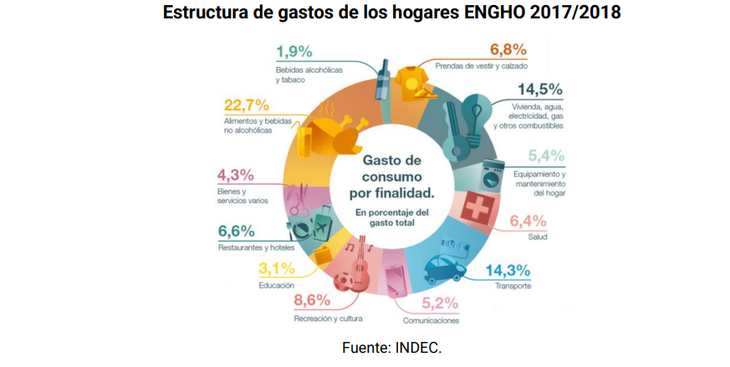The latest report of the INational Institute of Statistics and Censuses (INDEC) reveals that in 2024 the Sales in supermarkets fell 7.6%, phenomenon that apparently coexisted with an improvement in salaries in the registered sector of the economy, according to the Government.
The phenomenon would have no apparent explanation. If consumers had improved their situation, then they would have decided to consume less food. in supermarkets, despite having greater resources.
One of the explanations could be that relative price changes are being recorded. That is, the weight of the public services rose more than food And, therefore, despite earning more, people use everything they earn to pay bills.
In that sense, a report from Center for Argentine Political Economy (CEPA) raises the hypothesis that, Strictly speaking, salaries would not have improved in 2024 if the INDEC had changed the way of measuring inflation.
salaryvssuper.png
As has been proposed recently, the organization has to update the household consumption basket, because the one being used weights expenses in a different way than what happens in reality. Measured correctly, CEPA points out, the purchasing power of salaries did not improve, but rather fell.
The report found that the cThe relationship between the average registered salary of the economy and sales in supermarkets is 0.838 between January 2017 and November 2023. Instead, From November 2023 to the same month last year the index plummets to -0.05.It is worth mentioning that the indicator establishes that 1 is equivalent to a total correspondence and zero represents a null correspondence.
“How is this divergence explained? The reason is that the current inflation measurement does not represent the consumption basket of Argentines. reflects a distorted salary recovery”, assures the report.
indec-ponderadores.png

The report indicates that the weights used by INDEC that establish what proportion of expenses families allocate to food, services, clothing or transportation are outdated.
They are used weights 2004-2005 updated as of December 2016, which was the moment when national inflation was measured. “At that time, Argentine households allocated 27% of their total expenses for food and non-alcoholic beverages, 11% for transportation, 9.9% to dress, among the main items,” explains the report.
Instead, Between 2017-2018, INDEC developed new weights that have not yet been applied, according to the report. In that sense, the CEPA suggests that there would be “a growth in the percentage of spending that households allocate to services such as water, electricity and gas from 9.4% to 14.5%. He also states that there is “an increase in Transportation from 11% to 14.3%, an increase in Communications from 2.8% to 5.2% and an reduction of food weighting from 27% to 22.7%.
“In short, in the period November 2023-October 2024, while With the current weights, the accumulated inflation was 159.8%, if we applied the weights of the 2017/18 Household Survey, the accumulated inflation would be 181.9%”says CEPA.
The study indicates that “with the current methodology, the purchasing power of this segment of employees is 1.5% in November 2024 in relation to November 2023.” “However, If we apply the 2017 weights, the drop in purchasing capacity amounts to 6.8%,” says the study..
Source: Ambito
I’m a recent graduate of the University of Missouri with a degree in journalism. I started working as a news reporter for 24 Hours World about two years ago, and I’ve been writing articles ever since. My main focus is automotive news, but I’ve also written about politics, lifestyle, and entertainment.




